Swiss astronaut: ‘Money for space travel is an investment’
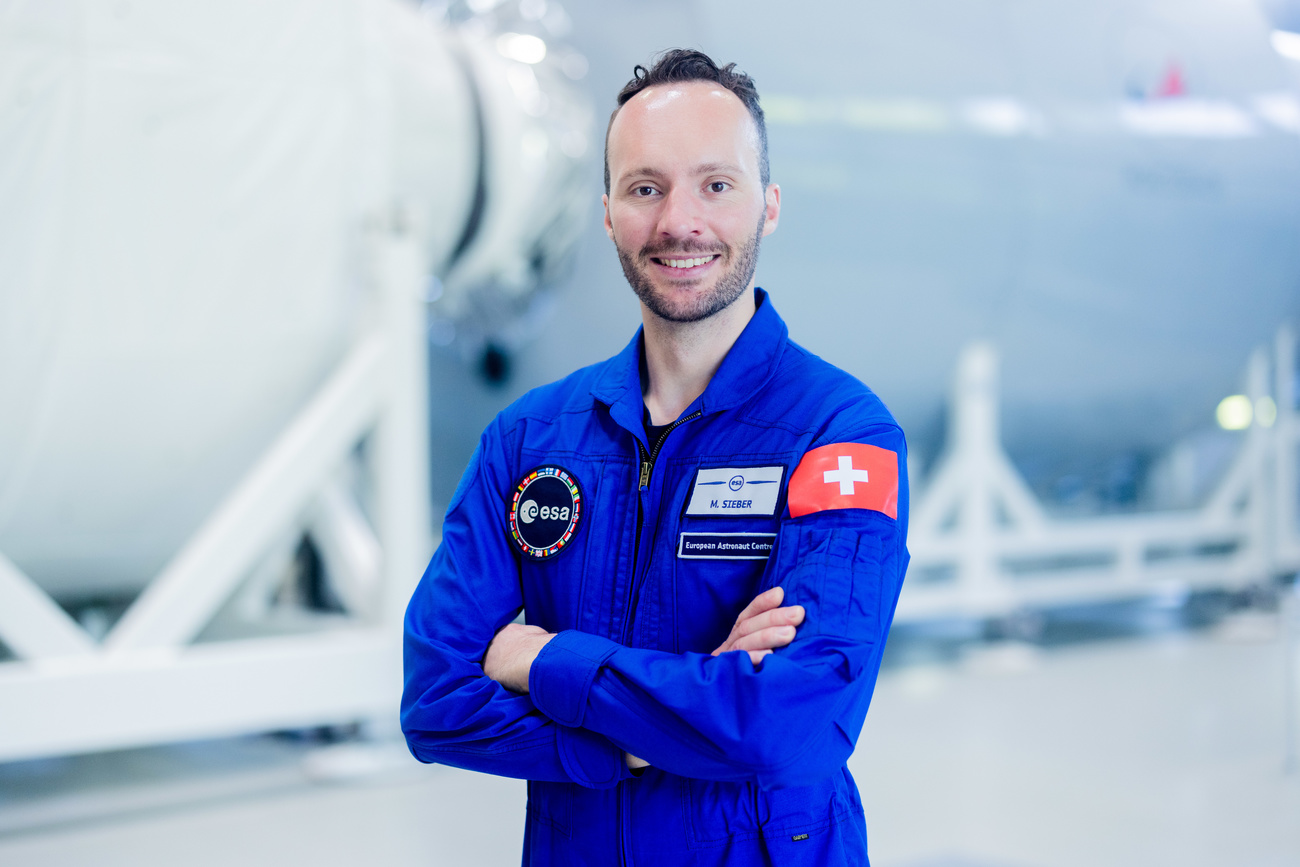
They may soon be going to the International Space Station. After a month of training, the European Space Agency (ESA) presented the five astronauts of its new class. Among them, Marco Sieber, the second Swiss astronaut after Claude Nicollier. We met him at the training centre in Cologne, Germany.
Marco Sieber, a physician from Kirchberg in canton Bern, is the second Swiss to be admitted to the ESA’s prestigious training program of the European Space Agency (ESA). Also in his class are two future female astronauts and two other men. All of them will probably fly to the International Space Station (ISS) in a few years, but not necessarily together.
SWI swissinfo.ch: How did the first month of training go? Any interesting anecdotes already?
Marco Sieber: It’s been really exciting so far. We’ve already had a lot of interesting classes and sport exercises, but no anecdotes as such yet.
SWI: Five people are now in training out of a total of 22,500 candidates. How did you prepare for the application process?
M.C.: The key thing was the letter of application – that had to be completely spot on. I spent a lot of time writing my CV, and I also asked various people for help reading it through. After that came the next hurdle, namely the computerised tests. There was a computer programme you could practice on, which I of course used extensively. And we formed groups with other candidates for the interviews and psychological evaluations to practice and simulate them. It involved a lot of background preparation.
SWI: Astronauts have to stay calm in stressful situations. Does being a medic make you an ideal candidate in that sense?
M.C.: I’ve certainly experienced a number of stressful moments in my life, moments where I’ve had to make the right decisions under pressure. But the things I’m up against here are a completely different dimension. Having said that, we’ve also got fantastic support from Switzerland – from the Swiss Space Office and from the State Secretariat for Education, Research and Innovation. But we also get good support from all different directions at the ESA. I think all this makes it easier for us.
SWI: You do parachute jumping, you dive, fly airplanes. Are you always in your element?
M.C.: It always depends on how you prepare yourself. If I get thrown into a situation unprepared, then yes, it can make me slightly uncomfortable. But if you approach things systematically and train well for them, then ultimately you can feel at ease in any potential situation.

More
In space exploration, Switzerland punches above its weight
SWI: In that sense you were meant to be an astronaut, no?
M.C.: That’s what the ESA has decided, and I’m really happy that they selected me. That’s also why I hope the decision was the correct one. And I’m certainly going to do my best to prove them right.
SWI: In films you frequently see astronauts in a centrifuge being pushed to their physical limits. Is there one like that in Cologne too?
M.C.: The same centrifuge that you often see in films? I don’t think there’s one of those here. We’ve certainly got particular psychological training courses here, but I think you probably have to go to the US to see the centrifuge.
SWI: Would you succeed a stress test like that?
M.C.: A lot of people have passed it before me. I think it’s also something that’s trainable to some extent. How one reacts to it in reality, I can’t say, but I hope that it’s doable.
SWI: Billions are being invested in space research. A lot of people find it incomprehensible. How would you justify it?
M.C.: Anytime a lot of money gets invested, people are obviously also critical about it. And that’s not a bad thing –such decisions can’t simply get made by ignoring other people’s voices. Personally I think that money spent on space isn’t an expenditure, instead it’s an investment. For every euro invested in space travel in Europe, two or three euros flow back as returns: in the form of contracts for industries, job opportunities, new technologies, etc. Humankind is also made to explore its environment. We’ve explored the North and South Poles, as well as the oceans and the highest mountains on the planet. For me, space is the next challenge. There are an awful lot of questions out there that are still unanswered.
SWI: What is your own space dream? Where would you like it to take you?
M.C.: As far as our class is concerned, the first destination is certainly the ISS. The aim is that each and every one of us gets the chance to fly there. And that’s of course my personal dream. But none of it’s clear yet; a lot can happen in the meantime. But that would be my first goal. And I think, depending on how things turn out, that perhaps one or another of us could fly to the Moon. That would certainly be amazing.
SWI: How do you see your role as part of a crew?
M.C.: Up till now we’re all getting along with each other brilliantly. We all have each other’s backs. The team feeling is happy and motivated. The specific roles haven’t been clearly determined yet, but I don’t think this basic-training team will fly collectively to the space station. Instead, we’ll fly together with other astronauts, which is when the roles get allocated.
SWI: Having a doctor on board is always an advantage, isn’t it?
M.C.: Obviously it’s helpful to have medical experience, especially on longer missions over bigger distances. Nevertheless, I don’t think that the selection criteria are that there always has to be a doctor there. That would be impossible anyway. But naturally it’s a good thing to be able to be on board as a doctor. Perhaps it’s also an advantage in making the selection for a potential mission.
SWI: You’re the second Swiss astronaut, after Claude Nicollier. You already know each other. How did that come about?
M.C.: He was already an idol for me as a child. I contacted him by email during the selection process and he sent me a really friendly reply. He suggested that I could give him a phone call once I’d passed the first stages. We stayed in contact after that, and he took a lot of care of me, including helping me a little to prepare. When it was clear that I’d made it, I had an opportunity to meet him. That was a wonderful moment for me.
SWI: To finish off, a last question that we let ChatGPT prepare for you. The artificial intelligence tool would like to know what you think about private space travel.
M.C.: You can look at private space travel from two different angles. On the one hand it’s a good thing if as many people as possible can see Earth from above. There’s this overview effect, when people get an overall perspective of the whole planet – it apparently shifts people’s minds a little. And I hope that when rich and important people also experience this effect for themselves, perhaps they’ll also change what they do. That would certainly be a good outcome. The disadvantage, naturally, is the ecological aspect. That’s where we’ve definitely got to find a way to also make space tourism sustainable and ecological.
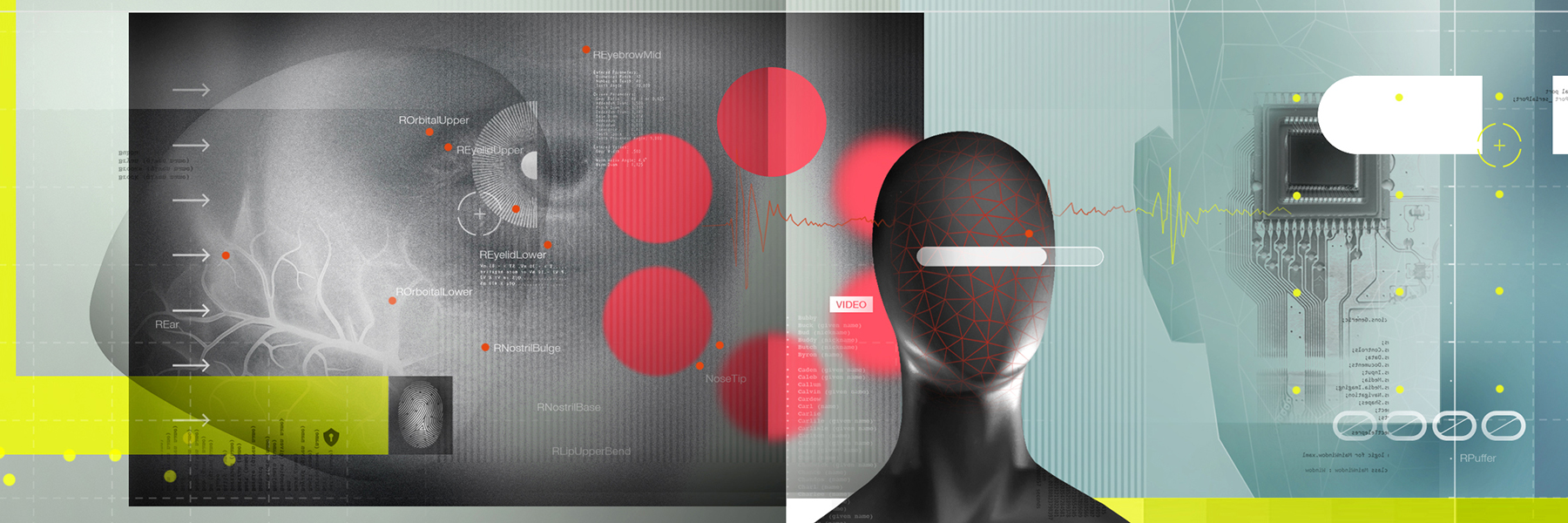
More
The ethics of artificial intelligence

In compliance with the JTI standards
More: SWI swissinfo.ch certified by the Journalism Trust Initiative








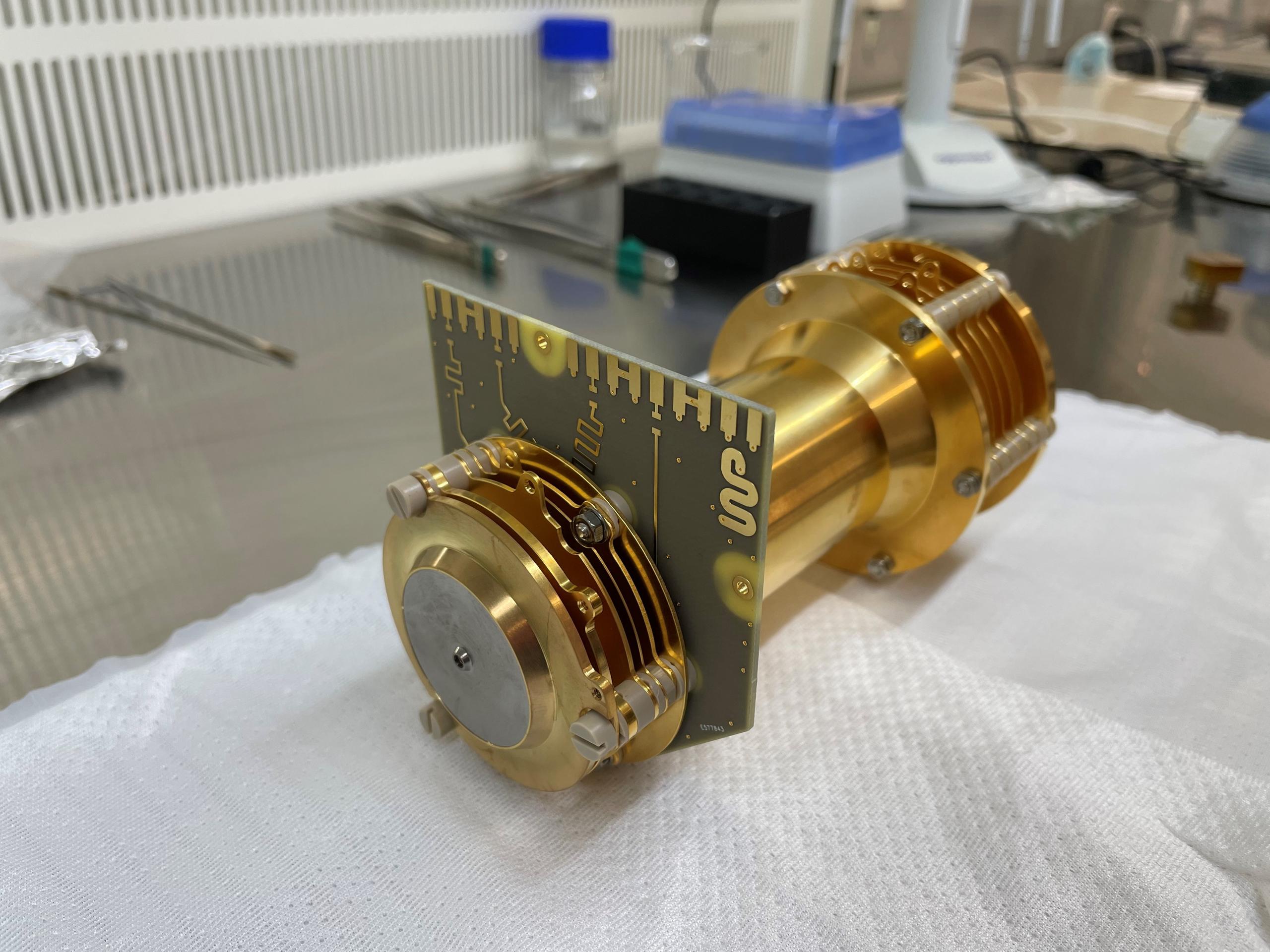
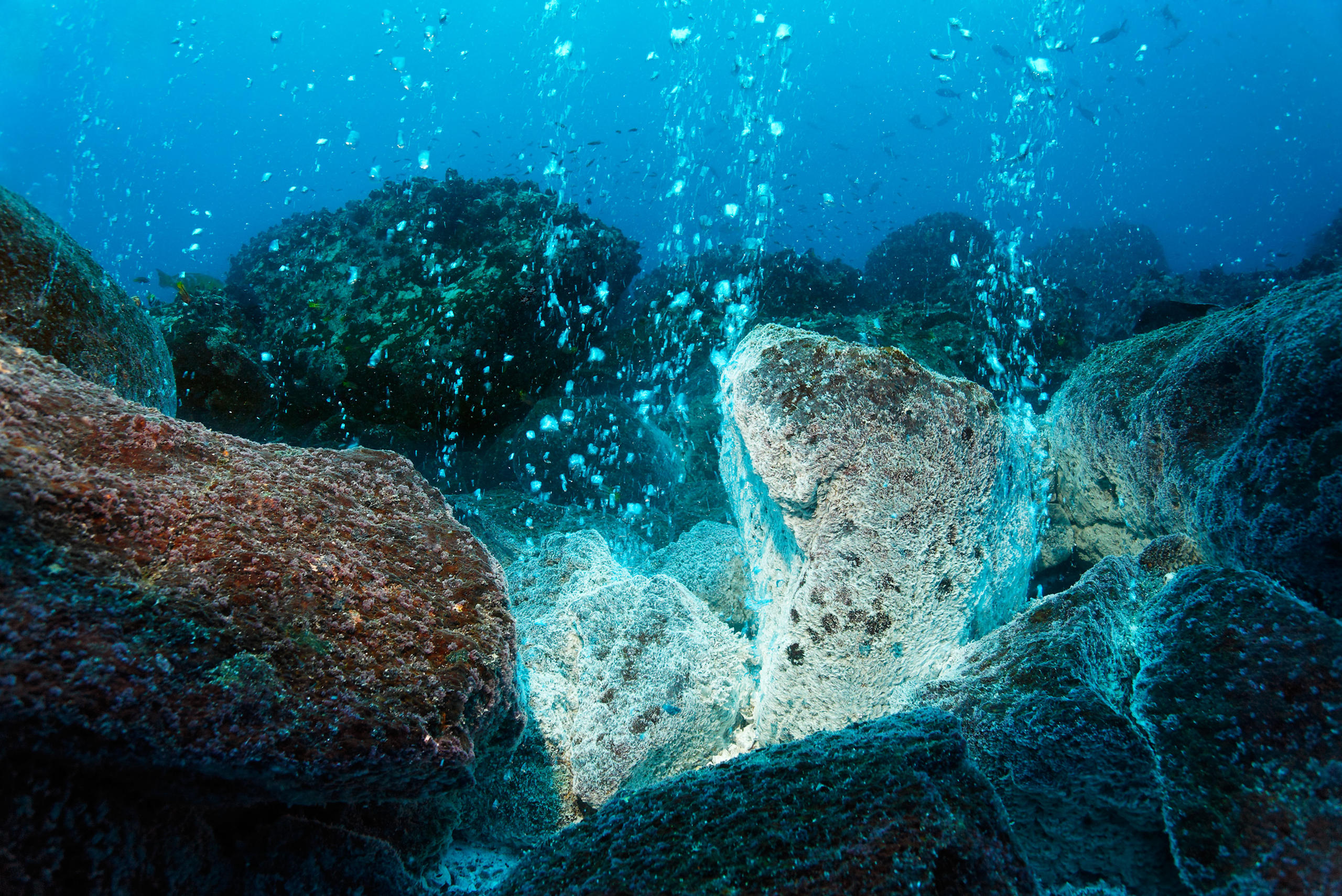
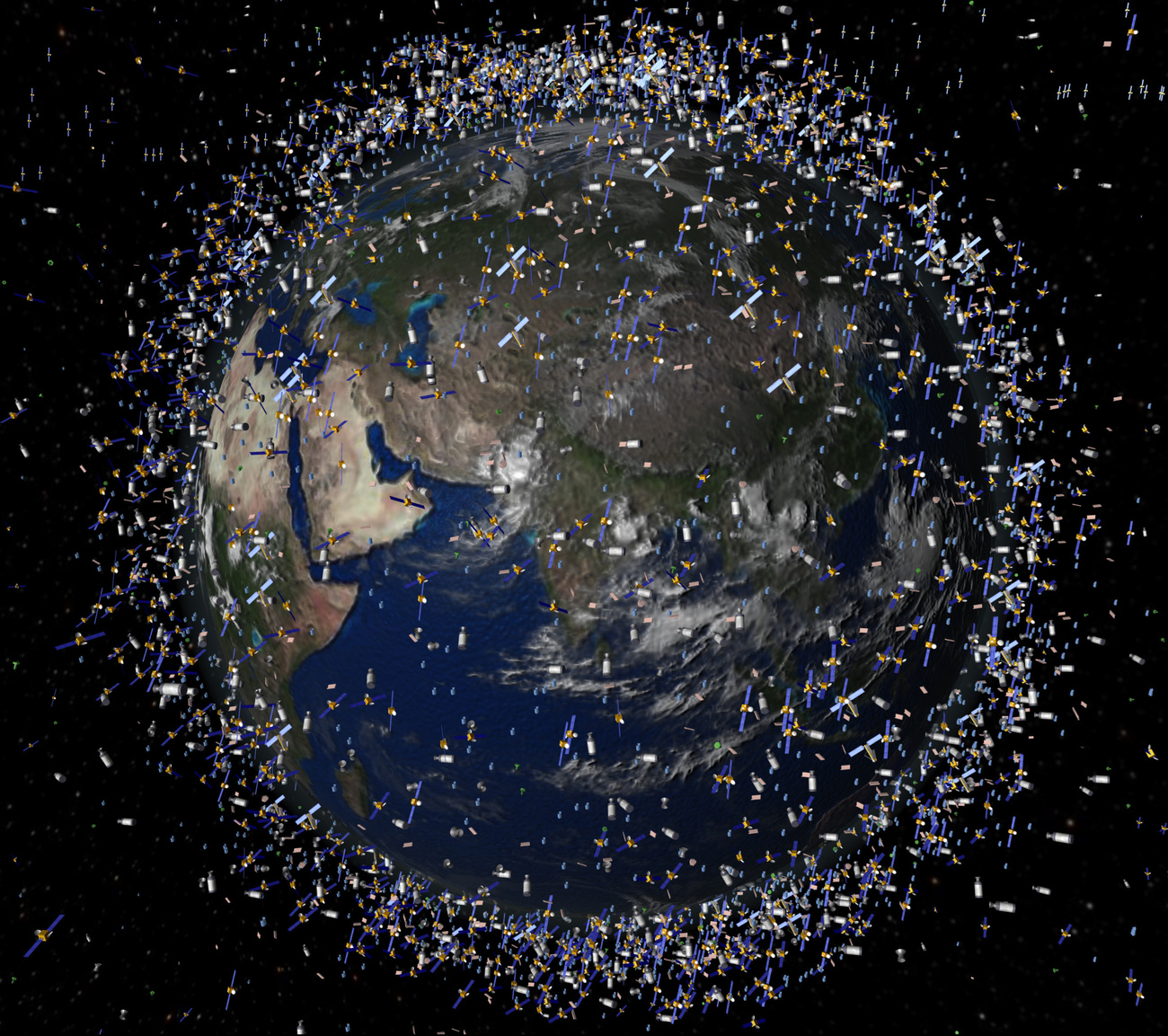
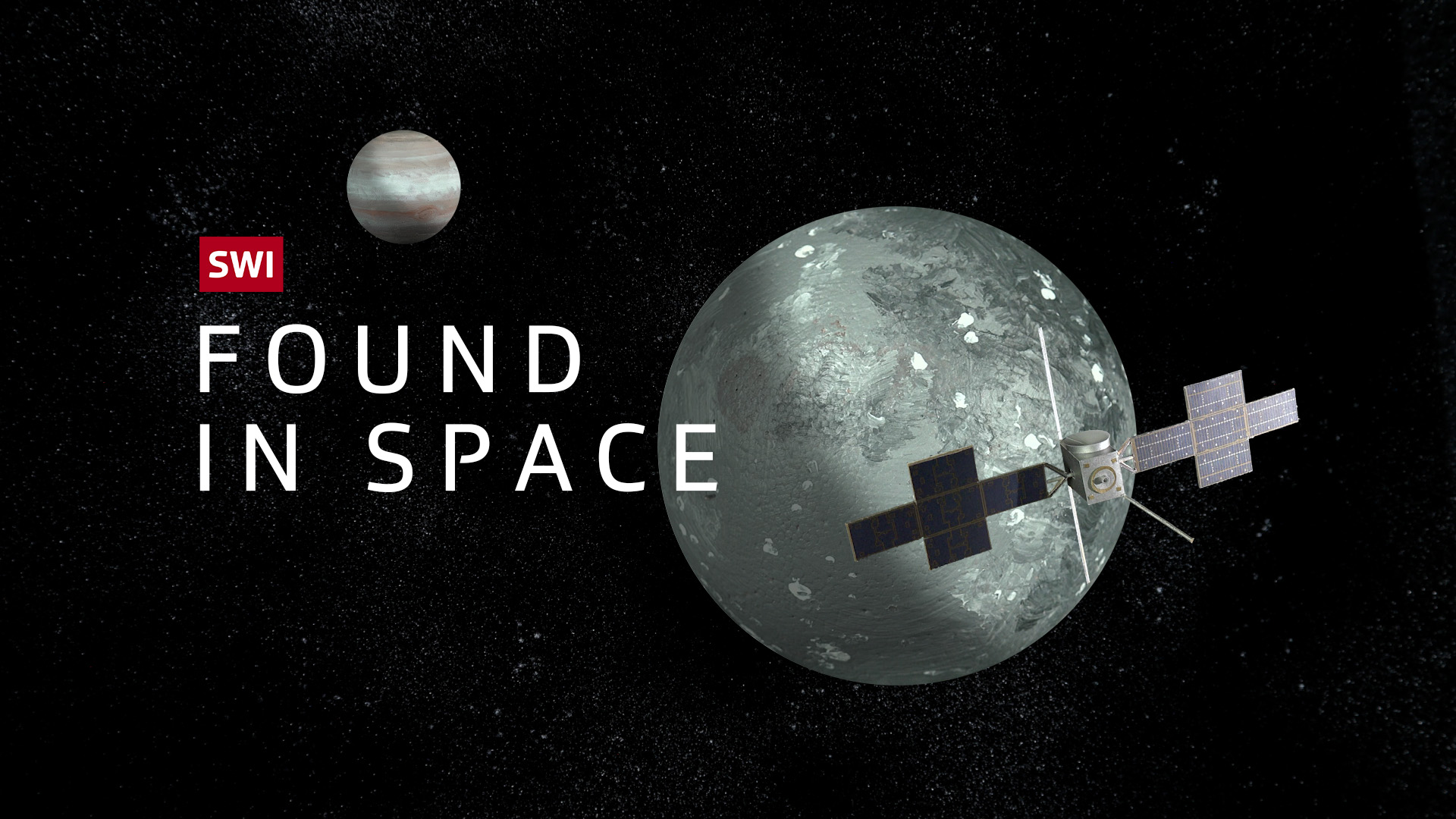
You can find an overview of ongoing debates with our journalists here . Please join us!
If you want to start a conversation about a topic raised in this article or want to report factual errors, email us at english@swissinfo.ch.